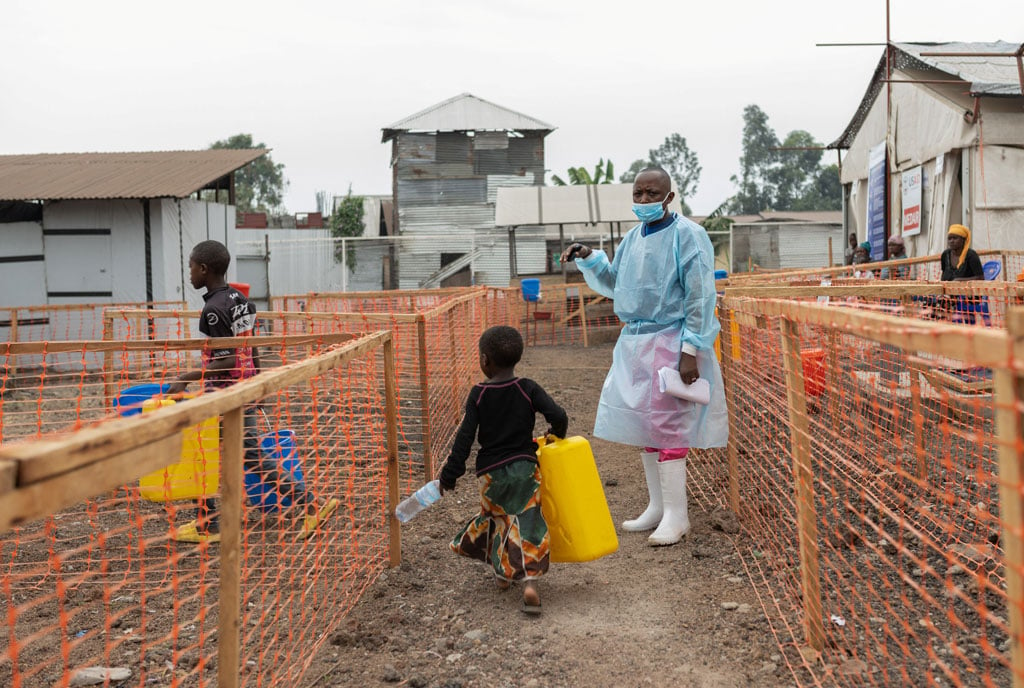Prime
UN agencies concerned by mpox spread in Congo's refugee camps

Heritier Bwira, a Congolese health worker guides patients discharged on the hygienic measures to follow after recovering from Mpox - an infectious disease caused by the monkeypox virus that sparks off a painful rash, enlarged lymph nodes and fever; at the treatment centre in Munigi, following Mpox cases in Nyiragongo territory near Goma, North Kivu province, Democratic Republic of the Congo July 19, 2024.
What you need to know:
- The U.N. refugee agency, UNHCR, said that some 42 suspected mpox cases have so far been reported in refugee camps.
U.N. agencies on Tuesday raised the alarm about the spread of mpox in Democratic Republic of Congo's refugee camps where people are more susceptible to infection because of depleted immune systems and cramped living conditions.
More than 7 million people are uprooted across Congo which has one of the highest displacement levels in the world, including those fleeing internal conflicts and disasters and those arriving from Rwanda, Burundi and South Sudan.
The U.N. refugee agency, UNHCR, said that some 42 suspected mpox cases have so far been reported in refugee camps and transit centres in South Kivu, eastern Congo where there are nearly 2 million internally displaced people and refugees.
"For those fleeing violence, implementing many of the mpox measures is a tremendous challenge," said Dr. Allen Maina, Public Health Chief for UNHCR. "They have no space to isolate when they develop symptoms of the disease," he added, saying that infected individuals were opting to distance themselves from crowded shelters to sleep in the open to protect others.
Congo has had more than 18,000 suspected mpox cases and 615 deaths this year, according to the World Health Organization (WHO), which declared an mpox health emergency this month after a new variant called clade Ib emerged.
Mpox, which causes flu-like symptoms and pus-filled lesions, is sexually transmitted but can also spread through close contact with an infected person.
While it is not clear yet if they are the new, seemingly more contagious clade Ib strain, WHO spokesperson Margaret Harris said South Kivu is an area where this variant was mostly circulating.
"(People) are already very stressed, hungry, terrified, displaced. So there's an immunological deficit, an immunological weakness which makes them more likely to become ill with anything they get, including mpox," she said at the same press briefing. An unknown number of mpox cases, including among children, have also emerged in North Kivu displacement camps.
Asked whether Congo's camps could become incubators for a broader spread of the disease, Maina said the focus should be on disease prevention and improving camp conditions.





